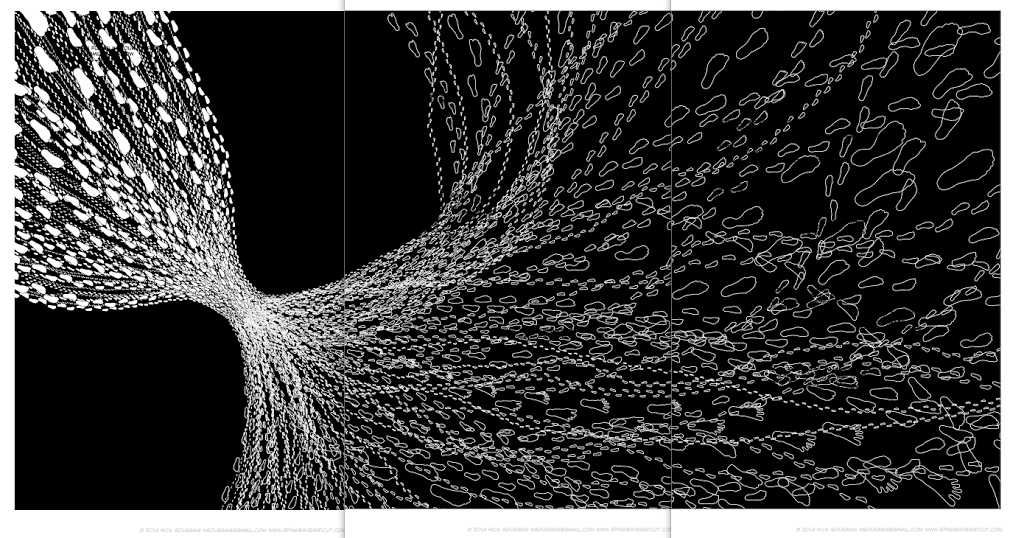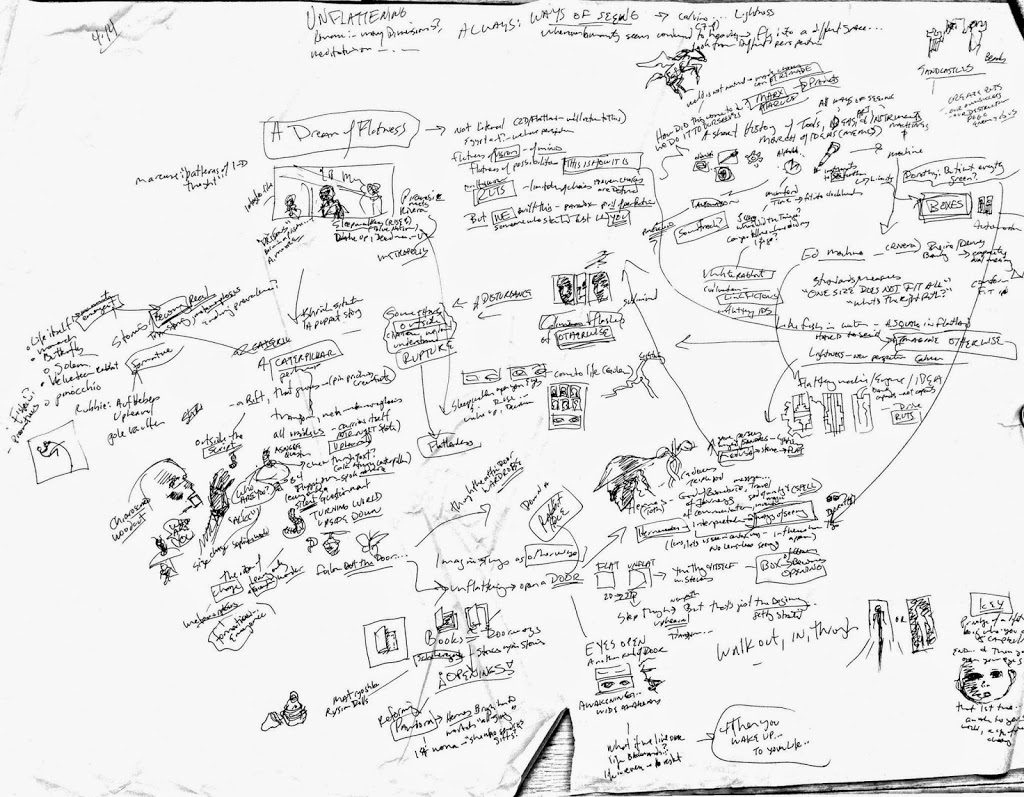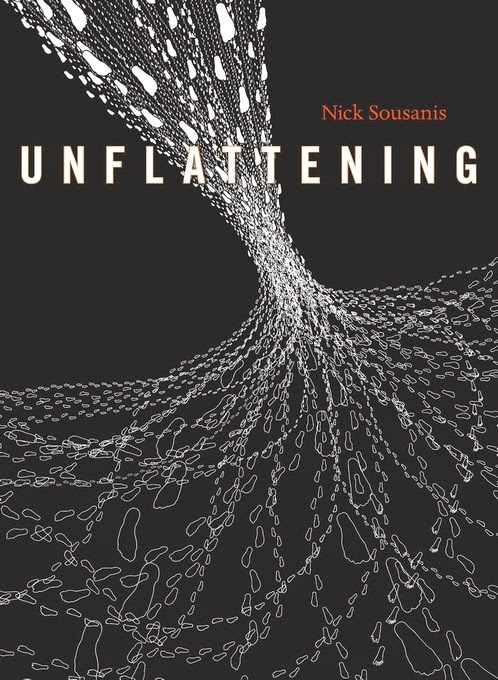I’m pleased to announce that my comics dissertation will be published by Harvard University Press in March of 2015! Check out HUP’s catalog here to see all the specifics about Unflattening.
This has been in the works for over a year now and I’m thrilled to be able to officially share the news! I’ve been extremely fortunate to work with a wonderful editor in Sharmila Sen and just a great team at HUP all around. Since defending and handing in the dissertation back in May, with their input I’ve been plugging away on prepping the book version. The most prominent addition to the dissertation version is the cover – displayed here. (The full cover wraps around the back and onto the flaps as well.) The cover is based on the interior pages that emerged from the “put your feet in my dissertation” invitation and features the outlines of feet from people around the world.

One of the most exciting things for me in seeing this come to fruition is to look back over all my sketches (I’ve been scanning them as something that will be shared in the notes section) and look at the genesis of ideas scrawled out onto sheets of newsprint as early as 2011 and see how much of what the final work looks like was present in those earliest notes, what changed along the way, never made it in, and only came about much later on. I see it a bit as revealing that our
ideas don’t emerge like Athena, fully formed from Zeus’s brow, rather our thinking coalesces from initial inklings and may take on many forms before the finished appearance in which most people encounter it. Many of these will be in the book, and I plan to share more on my site in the coming months. (The page shown here is the very first page of notes when I started on the project.)

Thanks to all for the support over the last several years – it’s been a great privilege to develop this work in public conversations – both in person and virtual. Looking forward to being able to share the complete work in just a few short months! – Nick
The primacy of words over images has deep roots in Western culture. But what if the two are inextricably linked, equal partners in meaning-making? Written and drawn entirely as comics, Unflattening is an experiment in visual thinking. Nick Sousanis defies conventional forms of scholarly discourse to offer readers both a stunning work of graphic art and a serious inquiry into the ways humans construct knowledge.
Unflattening is an insurrection against the fixed viewpoint. Weaving together diverse ways of seeing drawn from science, philosophy, art, literature, and mythology, it uses the collage-like capacity of comics to show that perception is always an active process of incorporating and reevaluating different vantage points. While its vibrant, constantly morphing images occasionally serve as illustrations of text, they more often connect in nonlinear fashion to other visual references throughout the book. They become allusions, allegories, and motifs, pitting realism against abstraction and making us aware that more meets the eye than is presented on the page.
In its graphic innovations and restless shape-shifting, Unflattening is meant to counteract the type of narrow, rigid thinking that Sousanis calls “flatness.” Just as the two-dimensional inhabitants of Edwin A. Abbott’s novella Flatland could not fathom the concept of “upwards,” Sousanis says, we are often unable to see past the boundaries of our current frame of mind. Fusing words and images to produce new forms of knowledge, Unflattening teaches us how to access modes of understanding beyond what we normally apprehend.
“Nick Sousanis’s Unflattening is a complex, beautiful, delirious meditation on just about everything under the sun; a unique and bracing read.”—Scott McCloud, author of Understanding Comics and Making Comics
“An important book, Unflattening is consistently innovative, using abstraction alongside realism, using framing and the (dis)organization of the page to represent different modes of thought. The words and images speak for themselves and succeed on their own terms. I couldn’t stop reading it.”—Henry Jenkins, author of Spreadable Media: Creating Value and Meaning in a Networked Society




